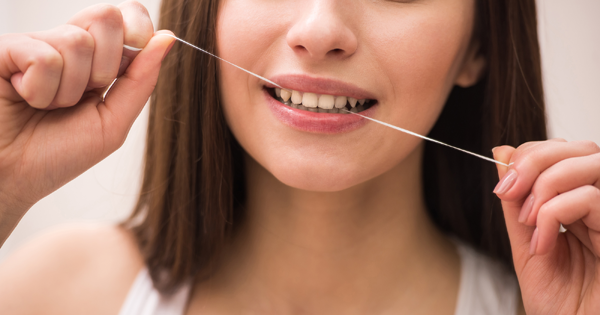Advertisement
Every woman deals with the dreaded signs of PMS in a different way.
While one may lie in bed with a heating pad to ease cramps, another might eat a pint of Rocky Road to satiate those killer chocolate cravings.
Cramps, cravings, bloating, mood swings, and fatigue are all pretty well-known period symptoms, so they’re fairly easy to gauge when you feel them coming on.
But have you ever felt PMS creeping up…in your teeth?
According to Health.com a lot of women experience what’s known as “menstruation gingivitis,” even if they have no idea what it means.
Menstruation gingivitis refers to an inflammation of the gums that typically begins a few days before a woman’s period and disappears once it starts.
The symptoms range anywhere from inflamed, red, or swollen gums to achy, sensitive, or loose feeling teeth.
Health.com reached out to ob-gyn Mary Rosser, MD, PhD, at Montefiore Health System in New York City, to find out more about this bizarre occurrence.
“A surge in the female hormones estrogen and progesterone causes an increase in blood flow to the gums, and a decrease in the way that we can fight off plaque and other toxins,” Dr. Rosser explained.
These monthly hormonal changes don’t actually cause gum disease, but they can amplify existing issues.
While there isn’t a whole lot that a woman can do to get rid of menstruation gingivitis completely, Dr. Ross does suggest adopting a good dental hygiene routine that includes regular brushing, flossing, and dentist visits.
She also says cutting back on sugary sweets and carb-heavy foods can help reduce gum inflammation.




